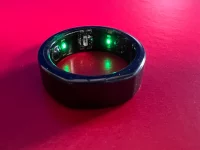NewTech. Vetigel: The Plant-Based Gel That Stops Traumatic Bleeding Wounds in 15 Seconds.

BLOOD. A graduate from Polytechnic Institute of New York University (NYU) has invented a gel that can stop bleeding and seal serious wounds in just 15 seconds, and hopes his invention will soon be used by the military, paramedics and even vets to save lives.
Vetigel works by using a plant-based haemophilic polymer made from polysaccharides that grab onto the blood and form a mesh that seals over the wound, without any need to apply pressure.
In a medical emergency, a first responder could simply apply the gel from a syringe-shaped applicator with no preparation required, and the bleeding will stop, which means that this could be a viablereplacement for plasters and bandages today.
The gel is the brainchild of Joe Landolina, 21, the founder and CEO of Suneris, who came up with the concept when he was just 17 in 2010.
« I was always interested in science and my grandfather owned a winery, so from a really young age I learned how to work in a chemistry lab and had a love for chemistry, » he told IBTimes UK.
« As I was playing around, I stumbled upon two polymers that when you mix them together, they become a solid mass. That was the Eureka moment for me. »
Working on his invention after school
Landolina started a combined Undergraduate and Masters degree in chemical engineering and biomedical engineering with NYU a year later, but while many of his peers were enjoying being away from home and getting into university life, Landolina was working on building a startup company.
« I initially started with just classmates, but in the end it took four years of research, hiring PHD [researchers] and getting lots of lab equipment in to test and develop the product, » he said.
« I did it after school and sometimes I even had to skip classes. »
Luckily Landolina was supported by his university. In 2011, he took both the first prize in a competition held by NYU’s engineering school, as well as second prize in another competition held by the business school.
From these two competitions he won $5,000 (£3,187) – just enough to start working on his idea, while his university mentored him with coaching on how to start a business and tried to help find private investors.










